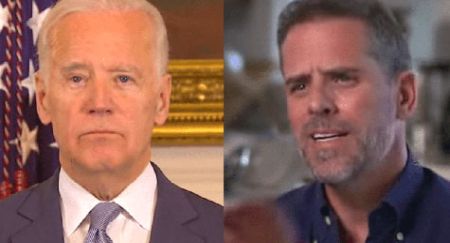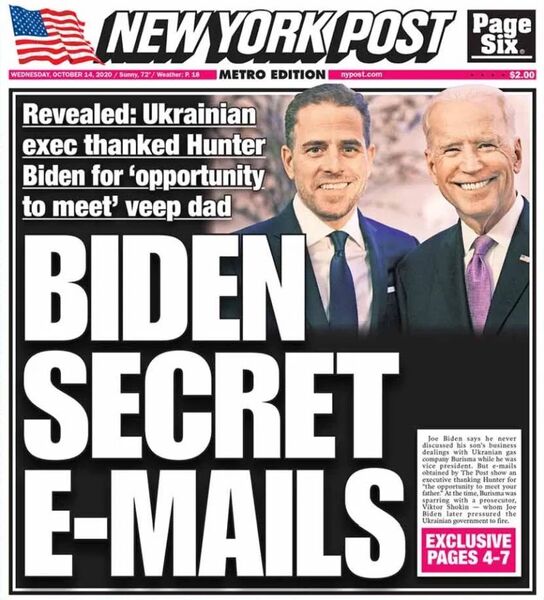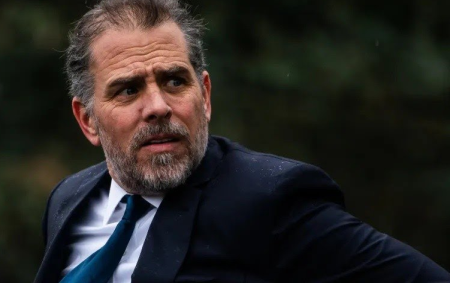An Unconstitutional Agreement: Judge Noreika smelled a rat, understood the lawyers were hiding the ball, and trying to force her to rubber-stamp their absurd bargain
By Will ScharfWASHINGTON, D.C. (Texas Insider Report) — Hunter Biden arrived at a Delaware Federal Court Wednesday morning expecting that in a few short hours he would be walking out a free man with full immunity from prosecution for an exceedingly wide range of alleged criminal conduct – ranging from Gun & Drug Charges, to Foreign Influence Peddling. His expectation was that his deal would be insulated from challenges from the presiding judge, or from a prosecutorial change of heart under a future administration.
His expectation was that his legal ordeals were coming to a close.
 Instead, U.S. District Court Judge Maryellen Noreika (right,) picked apart his plea deal with surgical precision, exposing its legal contradictions, and upbraiding both defense counsel and the Department of Justice for structuring an unprecedented deal that in her view – and mine – was illegal and unconstitutional.
Instead, U.S. District Court Judge Maryellen Noreika (right,) picked apart his plea deal with surgical precision, exposing its legal contradictions, and upbraiding both defense counsel and the Department of Justice for structuring an unprecedented deal that in her view – and mine – was illegal and unconstitutional.
I have reviewed the hearing transcript from Wednesday’s aborted change of plea hearing, as well as the agreed-to plea agreement and pretrial diversion agreement that Hunter thought were his salvation. I have spoken to individuals who were in the courtroom and witnessed Judge Noreika’s upturning of the apple cart.
Based on my experience as a federal prosecutor, and based on everything that I have seen and heard, here is what I believe to be the story of Hunter’s blown plea.
An Attempt to Avoid Judicial Oversight
Typically, if the government is offering a defendant to either drop charges or decline to bring new charges in return for the defendant’s guilty plea, the plea is structured under Federal Rule of Criminal Procedure 11(c)(1)(A). Pleas under this subsection are subject to judicial approval.
So if a judge believes the government’s decision to decline prosecution or dismiss charges in return for a plea to other charges is unjust, the judge can reject the plea agreement.
The deal reached between the DOJ and Hunter seems to have been that – in return for his pleading guilty to the two tax misdemeanor charges that were the subject of his plea, the government would agree not to prosecute Hunter for unlawful possession of a firearm, Foreign Agent Registration Act (FARA) violations, and other crimes related to his international business schemes in China and Ukraine with Bohai and Burisma, among others.
In any normal case, this would have been structured as a Rule 11(c)(1)(A) plea, which would have made it subject to judicial approval.
In Hunter’s case, though, the parties were apparently worried that Judge Norieka might reject such a broad grant of immunity from prosecution in return for such minor guilty pleas.
As a result, Hunter’s plea was structured under a different provision, Rule 11(c)(1)(B), which is usually just a plea agreement in return for a nonbinding sentencing recommendation, and which does not provide any ability of a court to intervene or reject the plea.
 To insulate Hunter’s plea from judicial oversight – and the possibility of judicial rejection – Hunter’s lawyers and the Department of Justice included no mention of the agreement not to prosecute Hunter for further crimes in the plea agreement. Instead they buried it in a separate pretrial diversion agreement, which they argued the judge was not a party to and therefore lacked the power to reject.
To insulate Hunter’s plea from judicial oversight – and the possibility of judicial rejection – Hunter’s lawyers and the Department of Justice included no mention of the agreement not to prosecute Hunter for further crimes in the plea agreement. Instead they buried it in a separate pretrial diversion agreement, which they argued the judge was not a party to and therefore lacked the power to reject.
Publicly, this pretrial diversion agreement was described as applying just to the unlawful possession of a firearm charge.
This was a wild mischaracterization of the agreement.
Included in the agreement was a provision that bound the United States to not prosecute Biden “for any federal crimes encompassed by... the Statement of Facts” attached to the Plea Agreement.
The referred-to Statement of Facts includes:
- Hunter’s role with and compensation from Burisma;
- Hunter’s role with and compensation from Chinese private equity firm Bohai, Harvest & Rosemont;
- Hunter’s holding company Owasco;
- Hunter’s consulting firm Rosemont Seneca; and
- many other aspects of Hunter’s controversial web of business relationships.
In other words, if Hunter were to complete probation, this pretrial diversion agreement would prevent DOJ from ever bringing charges against Hunter for any crimes relating to the offense conduct discussed in the plea agreement – which was purposely written to include his foreign influence peddling operations in China, Ukraine, and elsewhere.
Hunter and DOJ put the facts in the plea agreement, but put their non-prosecution agreement in the pretrial diversion agreement, effectively hiding the full scope of what DOJ was offering and Hunter was obtaining through these proceedings. Because this allowed them to, in their view, structure the plea agreement as a Rule 11(c)(1)(B) plea, it insulated the agreement from judicial oversight.
They went even further, though.
In an apparent effort to shield Hunter from a new administration, which might try to throw out the pretrial diversion agreement by claiming that Hunter had violated his probation terms, they included a provision – which they admitted was entirely novel, with no precedent – stating that the government could not deem Hunter to have violated the agreement without first proving up violations in front of the judge.
So the agreement they stated the judge had no role in – and therefore no ability to reject – also placed the judge in a position of having to sign off on any future prosecution.
An Unconstitutional Agreement
 Judge Noreika smelled a rat. She understood that the lawyers were trying to paint her into a corner and hide the ball while forcing her to rubber-stamp their absurd bargain.
Judge Noreika smelled a rat. She understood that the lawyers were trying to paint her into a corner and hide the ball while forcing her to rubber-stamp their absurd bargain.
Instead of being that rubberstamp though, she backed DOJ and Hunter’s lawyers into a corner by pulling all the details out into the open, explaining the very serious legal and constitutional issues with this unprecedented method of structuring what should have been a simple plea agreement – and demanding that the lawyers explain themselves, which they simply couldn’t.
DOJ, attempting to save face and save its case, stated on the record that the investigation into Hunter was ongoing and that Hunter remained susceptible to prosecution under FARA.
Hunter’s lawyers exploded.
They clearly believed that FARA was covered under the deal because as written, the pretrial diversion agreement language was broad enough to cover it. When the parties attempted to paper over the many issues raised, Judge Noreika was not satisfied. She demanded extensive briefing on the constitutional and legal issues raised during the hearing, leaving no chance that Hunter will be able to wrap up this case with any degree of rapidity.
And so here we are.
Hunter’s lawyers and DOJ are going to go off and try to pull together a new set of agreements, likely narrower and less novel in its arrangement to satisfy Judge Noreika and move the case.
They will have to explain their conduct in a public briefing – which may shed some light on the obviously tortured negotiations that led us to this place.
And, fortunately, the chances of any agreement proceeding with the kind of blanket immunity the parties had in mind as they walked into court Wednesday are essentially nil at this point.
Hunter may in fact have to face up to his crimes one day.
 Will Scharf is a former federal prosecutor, who also worked on the confirmations of Supreme Court Justices Brett Kavanaugh and Amy Coney Barrett. He is currently a Republican candidate for Missouri Attorney General.
Will Scharf is a former federal prosecutor, who also worked on the confirmations of Supreme Court Justices Brett Kavanaugh and Amy Coney Barrett. He is currently a Republican candidate for Missouri Attorney General.























